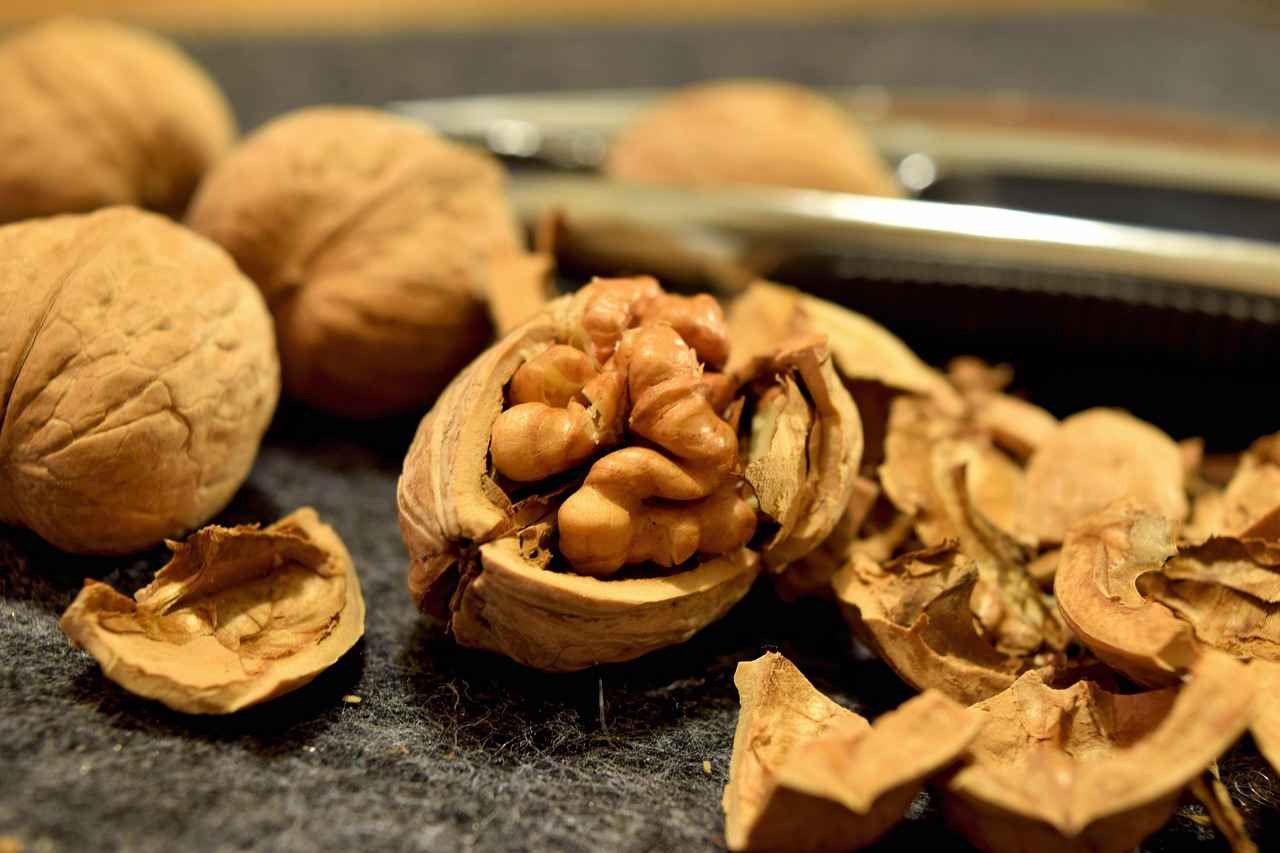This article delves into the role of casein protein in enhancing muscle definition. We will discuss its numerous benefits, practical applications, and nutritional significance for both fitness enthusiasts and bodybuilders.
What is Casein Protein?
Casein protein is derived from milk and is known for its slow digestion rate. This characteristic allows for a steady release of amino acids, making it particularly effective for muscle recovery and growth, especially during fasting periods or overnight.
Benefits of Casein Protein for Muscle Definition
- Enhanced Muscle Recovery: The slow absorption of casein protein aids in prolonged muscle recovery, which is essential after intense workouts.
- Reduced Muscle Breakdown: Casein helps to minimize muscle protein breakdown, ensuring that your hard-earned muscle mass is preserved.
- Improved Satiety: Its ability to promote feelings of fullness can assist those aiming to manage their weight effectively.
Slow Digestion and Muscle Recovery
The gradual release of amino acids from casein protein can optimize muscle recovery during sleep or extended periods without food, allowing your body to repair and grow stronger.
Impact on Muscle Soreness
Studies suggest that casein protein may help alleviate muscle soreness post-exercise, enabling individuals to recover faster and train more efficiently.
Comparison with Whey Protein
Unlike whey protein, which is quickly digested, casein maintains elevated amino acid levels in the bloodstream for a longer period, making it an effective option for nighttime supplementation.
How to Incorporate Casein Protein into Your Diet
Integrating casein protein into your diet can be simple. Options include:
- Casein Protein Powder: This can be easily mixed into shakes or smoothies, providing a convenient protein boost, especially before bedtime.
- Natural Sources: Foods such as cottage cheese, yogurt, and milk are rich in casein and can be enjoyed throughout the day.
Potential Side Effects of Casein Protein
While generally safe, some may experience digestive issues or allergies, particularly if they are lactose intolerant or have a dairy allergy.
Conclusion: Is Casein Protein Right for You?
In conclusion, casein protein can be a beneficial addition to your diet for achieving muscle definition. Evaluating your dietary needs and fitness goals will help you decide if casein aligns with your objectives.

What is Casein Protein?
Understanding Casein Protein
Casein protein is a slow-digesting dairy protein that plays a crucial role in muscle recovery and growth. Unlike other proteins, casein releases amino acids gradually, making it particularly effective during periods of fasting, such as overnight. This slow release helps maintain a steady supply of nutrients to the muscles, promoting optimal recovery and growth.
As a complete protein, casein contains all nine essential amino acids required for muscle repair and synthesis. This makes it an excellent choice for athletes and fitness enthusiasts looking to enhance their muscle definition and overall performance.
Why Choose Casein Protein?
- Muscle Recovery: The gradual absorption of casein protein helps reduce muscle breakdown and supports recovery after intense workouts.
- Improved Satiety: Casein promotes feelings of fullness, which can aid in weight management by controlling appetite.
- Convenient Supplementation: Casein protein is easy to incorporate into your diet, whether through powders or natural dairy sources.
How Does Casein Protein Work?
When consumed, casein forms a gel-like substance in the stomach, which slows down digestion. This process results in a sustained release of amino acids into the bloodstream, providing a prolonged supply of nutrients to the muscles. This is particularly beneficial during sleep, a time when the body undergoes repair and growth.
Incorporating Casein Protein into Your Diet
To reap the benefits of casein protein, consider adding the following to your diet:
- Casein Protein Powders: These can be mixed into smoothies or shakes, making them a convenient option for post-workout recovery.
- Dairy Products: Foods like cottage cheese, Greek yogurt, and milk are excellent natural sources of casein.
Conclusion
In summary, casein protein is a valuable addition to the diet for anyone looking to enhance muscle recovery and growth. With its unique properties and benefits, it can support your fitness goals effectively. Assess your individual needs and preferences to determine how casein protein can fit into your nutritional plan.

Benefits of Casein Protein for Muscle Definition
Casein protein is increasingly recognized for its role in enhancing muscle definition and overall fitness. This slow-digesting protein offers a range of benefits that are particularly valuable for those aiming to improve their physique and performance. Below, we explore the key advantages of incorporating casein protein into your diet.
- Enhanced Muscle Recovery: One of the most significant benefits of casein protein is its ability to support muscle recovery. The slow digestion rate allows for a steady release of amino acids into the bloodstream, which helps repair muscle fibers that are damaged during intense workouts.
- Reduced Muscle Breakdown: Casein protein can help minimize muscle breakdown, especially during periods of fasting, such as overnight. This is crucial for athletes and bodybuilders who want to preserve lean muscle mass while cutting fat.
- Improved Satiety: Casein protein promotes a feeling of fullness, which can be beneficial for those trying to manage their weight. By curbing hunger, it helps individuals stick to their dietary goals without feeling deprived.
- Support for Nighttime Recovery: Consuming casein protein before bed can be particularly effective. It provides a sustained release of amino acids while you sleep, ensuring that your muscles receive the nutrients they need for recovery and growth during the night.
Conclusion: Incorporating casein protein into your diet can significantly enhance muscle definition and overall fitness outcomes. Its unique properties make it a valuable tool for anyone looking to optimize their muscle recovery, reduce breakdown, and manage their weight effectively.
Slow Digestion and Muscle Recovery
Understanding the role of casein protein in muscle recovery is essential for athletes and fitness enthusiasts alike. The unique characteristics of casein protein contribute significantly to muscle repair and growth, especially during periods of rest. This article delves into how the slow digestion of casein protein can enhance muscle recovery, optimize growth, and support overall fitness goals.
Casein protein, derived from milk, is known for its slow-digesting properties. Unlike other proteins, such as whey, which are absorbed quickly, casein forms a gel-like substance in the stomach. This process leads to a gradual release of amino acids into the bloodstream, providing a sustained supply of nutrients over several hours. This slow release is particularly beneficial during sleep or extended periods without food, ensuring that the body has the necessary building blocks for muscle repair.
Research has shown that consuming casein protein before bedtime can significantly enhance muscle recovery. During sleep, the body undergoes critical repair processes, and having a steady supply of amino acids can help to prolong muscle recovery. This is especially important after intense workouts, where muscle fibers experience micro-tears that need to be repaired for growth and strength gains.
Furthermore, the slow digestion of casein protein can also help in reducing muscle soreness. Studies indicate that individuals who include casein in their post-workout nutrition experience less muscle soreness and can return to their training regimen more quickly. This attribute makes casein a strategic choice for athletes aiming to improve performance and resilience.
In summary, the slow digestion of casein protein plays a vital role in muscle recovery. By providing a sustained release of amino acids, it not only aids in muscle repair but also enhances overall athletic performance. Incorporating casein into your diet, especially before sleep, can be a game-changer for those serious about their fitness journey.
Impact on Muscle Soreness
After an intense workout, muscle soreness is a common experience for many fitness enthusiasts and athletes. This discomfort, often referred to as delayed onset muscle soreness (DOMS), can hinder subsequent training sessions and affect overall performance. Recent research suggests that casein protein may play a significant role in alleviating this soreness, promoting a more effective recovery process.
Casein protein, a slow-digesting protein derived from milk, offers a unique advantage due to its gradual release of amino acids into the bloodstream. This slow digestion is particularly beneficial after strenuous exercise, as it helps to maintain elevated levels of amino acids that are crucial for muscle repair and growth. By providing a steady supply of these essential nutrients, casein protein can help reduce the intensity of muscle soreness experienced post-workout.
Furthermore, studies have indicated that individuals who consume casein protein after intense workouts report lower levels of muscle soreness compared to those who do not. This reduction in soreness is attributed to the protein’s ability to minimize muscle breakdown and enhance recovery times. Consequently, incorporating casein protein into your post-workout nutrition can be a strategic move for those looking to maximize their training efforts.
| Benefits of Casein Protein | Impact on Muscle Soreness |
|---|---|
| Enhances muscle recovery | Reduces intensity of DOMS |
| Minimizes muscle breakdown | Promotes faster recovery times |
| Provides sustained amino acid release | Supports overall training effectiveness |
In conclusion, integrating casein protein into your diet, particularly after workouts, can significantly aid in reducing muscle soreness. This not only promotes a quicker recovery but also allows for more effective training sessions, ultimately supporting your fitness goals. Whether through supplements or natural food sources like cottage cheese and yogurt, casein protein can be a valuable ally in your muscle recovery strategy.
Comparison with Whey Protein
When it comes to protein supplementation, two of the most popular options are whey protein and casein protein. While both are derived from milk, they serve different purposes and offer unique benefits for fitness enthusiasts and bodybuilders. Understanding these differences can help you make an informed choice based on your dietary needs and fitness goals.
Digestive Rates
One of the primary distinctions between whey and casein protein lies in their digestion rates. Whey protein is known for its rapid absorption, providing a quick spike in amino acids in the bloodstream. This makes it an excellent choice for post-workout recovery, where immediate muscle repair is crucial. On the other hand, casein protein digests slowly, releasing amino acids gradually over several hours. This sustained release helps maintain elevated amino acid levels in the bloodstream, making it an ideal option for nighttime supplementation or during extended periods without food.
Impact on Muscle Recovery
Due to its slow digestion, casein protein can be particularly beneficial for muscle recovery. It allows for a prolonged supply of amino acids, which can help reduce muscle breakdown and promote growth, especially during sleep. In contrast, while whey protein is effective for immediate recovery, it may not sustain muscle repair as efficiently during longer fasting periods.
Satiety and Weight Management
Casein protein also has the advantage of promoting feelings of fullness, which can aid in weight management. This makes it a strategic choice for those looking to lose fat while preserving muscle mass. Whey protein, while beneficial for muscle gain, may not provide the same level of satiety and could lead to increased hunger shortly after consumption.
Conclusion
In summary, both whey and casein proteins have their unique benefits. If you’re looking for a quick protein source for post-workout recovery, whey may be your best bet. However, if your goal is to maintain muscle mass and promote recovery during sleep, casein protein is a superior choice. Ultimately, incorporating both types of protein into your diet can help you achieve a balanced approach to muscle building and recovery.
Improving Satiety and Weight Management
In the realm of fitness and nutrition, casein protein has garnered attention for its unique properties, particularly in promoting satiety and aiding in weight management. This slow-digesting protein is derived from milk and is known for its ability to keep individuals feeling full for extended periods.
One of the primary reasons casein protein is effective in controlling appetite is its slow absorption rate. Unlike other proteins, such as whey, which are quickly digested, casein forms a gel-like substance in the stomach. This gel slows down the digestive process, leading to a gradual release of amino acids into the bloodstream. As a result, individuals experience prolonged feelings of fullness, which can significantly reduce the urge to snack or overeat.
Moreover, research has shown that higher protein intake, particularly from sources like casein, can enhance hormonal responses related to appetite regulation. For instance, protein consumption can increase levels of peptide YY and GLP-1, hormones that promote feelings of satiety, while simultaneously reducing levels of ghrelin, the hormone responsible for hunger. This hormonal balance is crucial for anyone looking to manage their weight effectively.
Incorporating casein protein into a daily diet can be simple and versatile. It can be consumed in various forms, such as:
- Casein Protein Powder: Easily mixed into shakes or smoothies.
- Cottage Cheese: A rich source of casein that can be eaten as a snack.
- Greek Yogurt: High in protein and can be added to meals or consumed alone.
Ultimately, the ability of casein protein to promote feelings of fullness is a significant advantage for those aiming to reduce body fat while preserving muscle mass. By integrating casein into your dietary regimen, you can effectively manage your appetite and support your fitness goals.

How to Incorporate Casein Protein into Your Diet
Incorporating casein protein into your diet can be a simple and effective way to enhance your nutritional intake, especially for those focused on muscle recovery and definition. Here are some practical methods to seamlessly add casein protein to your daily routine.
1. Casein Protein Powders
One of the most convenient ways to consume casein is through casein protein powders. These powders can be easily mixed into various beverages such as:
- Shakes: Blend casein powder with your favorite fruits and vegetables for a nutritious smoothie.
- Oatmeal: Stir in a scoop of casein powder to your morning oatmeal for added protein.
- Protein Pancakes: Incorporate casein into your pancake batter for a protein-packed breakfast.
2. Dairy-Rich Foods
Natural sources of casein are abundant in dairy products. Consider including:
- Cottage Cheese: A versatile option that can be eaten alone, mixed with fruits, or used in recipes.
- Greek Yogurt: Rich in protein and can be used in smoothies, desserts, or as a snack.
- Milk: Both whole and skim milk are excellent sources of casein protein.
3. Timing Your Intake
To maximize the benefits of casein protein, consider your timing. Consuming casein before bed can provide a sustained release of amino acids throughout the night, aiding in recovery and muscle growth. Additionally, having it during long periods without food can help maintain muscle mass.
4. Combining with Other Proteins
For optimal results, consider combining casein with other types of protein, such as whey, to leverage the benefits of both fast and slow-digesting proteins.
Conclusion
Integrating casein protein into your diet can be both easy and beneficial for muscle recovery and overall health. By utilizing protein powders and natural dairy sources, you can enhance your protein intake and support your fitness goals effectively.
Using Casein Protein Powder
is an effective strategy for those looking to enhance their protein intake conveniently. This slow-digesting protein source is particularly beneficial for athletes and fitness enthusiasts aiming to support muscle recovery and growth.
One of the most appealing aspects of casein protein powder is its versatility. It can be easily incorporated into a variety of recipes, making it a practical choice for anyone’s diet. Here are some popular ways to use casein protein powder:
- Protein Shakes: Mix casein protein powder with water or milk for a quick, nutritious shake. This is especially beneficial when consumed before bedtime, as it provides a steady supply of amino acids throughout the night.
- Smoothies: Blend casein protein powder into your favorite smoothie recipes. Combine it with fruits, vegetables, and healthy fats for a balanced meal or snack.
- Baking: Incorporate casein protein powder into baked goods such as pancakes, muffins, or protein bars. This not only boosts the protein content but also enhances the texture of your treats.
- Oatmeal: Stir casein protein powder into your morning oatmeal for an extra protein kick. This helps keep you full and satisfied throughout the morning.
- Yogurt or Cottage Cheese: Mix casein powder into yogurt or cottage cheese for a creamy, protein-rich snack that can be enjoyed at any time of the day.
In addition to its ease of use, casein protein powder is particularly beneficial during long intervals between meals. It helps to prevent muscle breakdown and supports recovery, making it an ideal choice for those who may go several hours without eating.
Overall, incorporating casein protein powder into your diet can significantly enhance your protein intake and support your fitness goals. With its various applications, it is a convenient and effective option for anyone looking to optimize their nutrition.
Natural Sources of Casein
play a crucial role in providing this essential protein to individuals looking to enhance their muscle definition and overall health. Casein is primarily found in dairy products, making it an accessible and nutritious option for many. Below, we explore the various sources of casein and how they can be integrated into daily meals.
- Milk: One of the richest sources of casein, milk contains approximately 80% casein protein. Whether consumed as a beverage or used in cooking, milk is a versatile ingredient that can boost your protein intake.
- Cheese: Various types of cheese, such as cottage cheese and mozzarella, are excellent sources of casein. Cottage cheese, in particular, is favored by fitness enthusiasts for its high protein content and low fat.
- Yogurt: Both regular and Greek yogurt are packed with casein protein. Greek yogurt, with its creamier texture, is especially popular among those looking to increase their protein consumption while enjoying a delicious snack.
- Casein Protein Powder: For those who prefer a more concentrated source, casein protein powder is an ideal choice. It can be easily mixed into smoothies, shakes, or even baked goods, providing a convenient way to meet your protein needs.
Incorporating these natural sources of casein into your diet can be simple and enjoyable. For example, you might start your day with a bowl of Greek yogurt topped with fruits and nuts, or enjoy a glass of milk with your evening snack. Additionally, cheese can be added to salads or sandwiches, while cottage cheese makes a great topping for fruits or a base for savory dishes.
By including these nutritious dairy products in your meals, you can effectively increase your casein protein intake, supporting your fitness goals and overall health.

Potential Side Effects of Casein Protein
Casein protein is a popular choice among fitness enthusiasts and bodybuilders due to its numerous benefits for muscle recovery and growth. However, it is important to be aware of potential side effects that some individuals may experience. This section will delve into the possible digestive issues and allergic reactions associated with casein protein consumption.
Digestive Issues
While many people tolerate casein protein well, some may encounter digestive discomfort. This can manifest as bloating, gas, or even constipation. Individuals who are lactose intolerant might find that casein protein exacerbates their symptoms. Casein, being a dairy-derived protein, contains lactose, which can lead to digestive distress in sensitive individuals.
Allergic Reactions
Another concern is the potential for allergic reactions. Those with a known dairy allergy should avoid casein protein entirely, as it can provoke reactions ranging from mild symptoms like hives to severe anaphylactic responses. It is crucial for individuals with dairy allergies to read labels carefully and consult healthcare professionals before incorporating casein protein into their diets.
Recommendations for Safe Use
- Start with small amounts of casein protein to assess tolerance.
- Consider lactose-free options if lactose sensitivity is a concern.
- Consult with a healthcare provider if you have a history of allergies or digestive issues.
Conclusion
While casein protein can be beneficial for muscle recovery and definition, individuals should remain vigilant about their body’s responses. Understanding potential side effects, particularly related to digestion and allergies, will help users make informed choices regarding their protein supplementation.
Digestive Concerns
When it comes to consuming casein protein, some users may encounter digestive issues that can affect their overall experience. This is particularly true for individuals who are sensitive to lactose or have an intolerance to dairy products. Understanding these concerns is crucial for anyone considering incorporating casein protein into their diet.
- Bloating: One of the most common complaints is bloating. This sensation occurs when gas accumulates in the digestive tract, leading to discomfort. For those with lactose sensitivity, the body struggles to digest lactose, which can exacerbate bloating.
- Discomfort: Alongside bloating, users may experience abdominal discomfort or cramping. This can vary in intensity and may deter some individuals from continuing to use casein protein.
- Diarrhea: In some cases, lactose intolerance can lead to diarrhea after consuming casein protein. This reaction is due to the undigested lactose fermenting in the gut.
To mitigate these digestive concerns, individuals can consider the following strategies:
- Choose Lactose-Free Options: There are lactose-free casein protein powders available on the market that can provide the same benefits without the digestive discomfort.
- Gradual Introduction: Slowly incorporating casein protein into the diet can help the digestive system adjust. Start with smaller amounts and gradually increase as tolerated.
- Consult a Healthcare Provider: If digestive issues persist, consulting with a healthcare professional can provide personalized advice and alternatives.
In conclusion, while casein protein can be beneficial for muscle recovery and growth, it is essential to be aware of potential digestive concerns. By taking proactive steps, individuals can enjoy the advantages of casein protein without the discomfort.
Allergic Reactions
can pose significant health risks for individuals with specific food allergies, particularly those related to dairy products. For many, casein protein, a primary protein found in milk, can trigger various allergic responses. This section delves into the nature of these reactions, their symptoms, and essential precautions for those affected.
Individuals who are allergic to dairy must be vigilant, as casein can provoke reactions that range from mild symptoms such as hives and digestive discomfort to more severe manifestations like anaphylaxis. The immune system mistakenly identifies casein as a harmful substance, leading to an overreaction that can affect multiple body systems.
- Mild Reactions: Symptoms may include skin rashes, itching, or gastrointestinal issues such as nausea and diarrhea.
- Moderate Reactions: Individuals might experience swelling of the lips, face, or throat, along with difficulty breathing.
- Severe Reactions: Anaphylaxis is a life-threatening condition that requires immediate medical attention, characterized by rapid swelling, difficulty breathing, and a drop in blood pressure.
To manage a dairy allergy effectively, individuals should:
- Avoid all dairy products: This includes milk, cheese, yogurt, and any products containing casein.
- Read labels carefully: Many processed foods can contain hidden dairy ingredients, so it’s crucial to check for casein in ingredient lists.
- Consult healthcare professionals: Regular consultations with allergists can help manage symptoms and provide guidance on dietary restrictions.
In conclusion, while casein protein can be beneficial for muscle growth and recovery for many, those with a dairy allergy must avoid it at all costs. Understanding the potential for and taking the necessary precautions can help ensure safety and well-being.

Conclusion: Is Casein Protein Right for You?
In the quest for muscle definition, incorporating casein protein into your diet can be a strategic move. This slow-digesting protein offers unique benefits that set it apart from other protein sources, particularly for those focused on muscle recovery and maintenance. Understanding whether casein protein aligns with your fitness goals is essential for optimizing your dietary regimen.
Understanding Your Dietary Needs
- Assess your overall protein intake: Ensure you are meeting your daily protein requirements, which can vary based on activity level, age, and fitness goals.
- Consider your training schedule: If you often train late in the evening or have long periods without food, casein can provide a sustained source of amino acids.
- Evaluate your dietary preferences: If you are lactose intolerant or have a dairy allergy, casein may not be suitable for you.
Benefits of Casein Protein
- Muscle Recovery: The slow digestion of casein ensures a steady release of amino acids, promoting muscle recovery during sleep.
- Reduced Muscle Breakdown: Casein can help minimize muscle protein breakdown, especially during calorie deficits.
- Appetite Control: Its ability to enhance satiety can aid in weight management, helping you feel fuller for longer.
Practical Tips for Incorporation
- Use casein protein powder in smoothies or shakes, particularly before bedtime.
- Incorporate natural sources like cottage cheese, yogurt, and milk into your meals.
In conclusion, casein protein can be a valuable addition to your diet if your goals include muscle definition and recovery. By assessing your dietary needs and preferences, you can determine if it is the right fit for your fitness journey.














